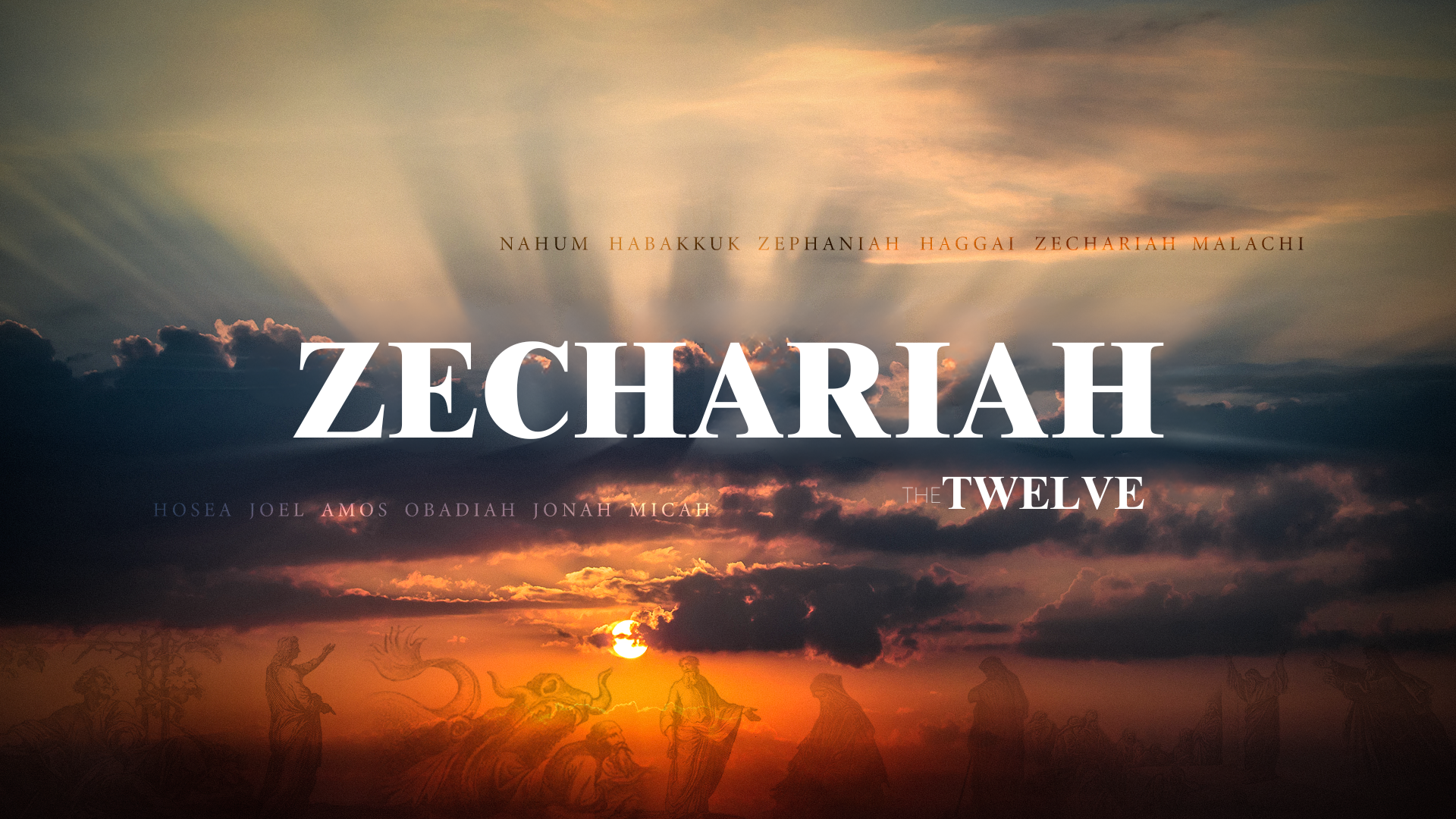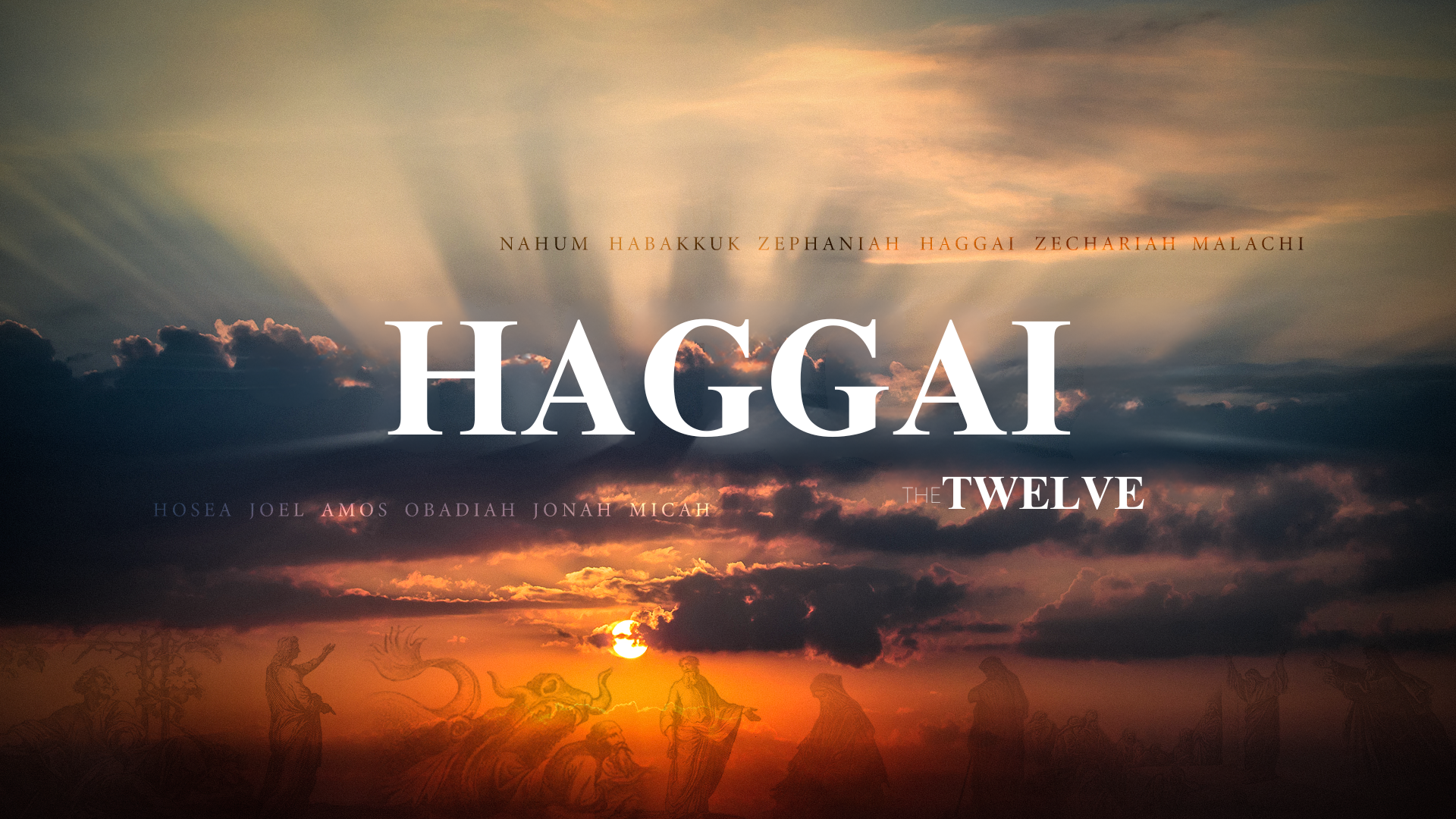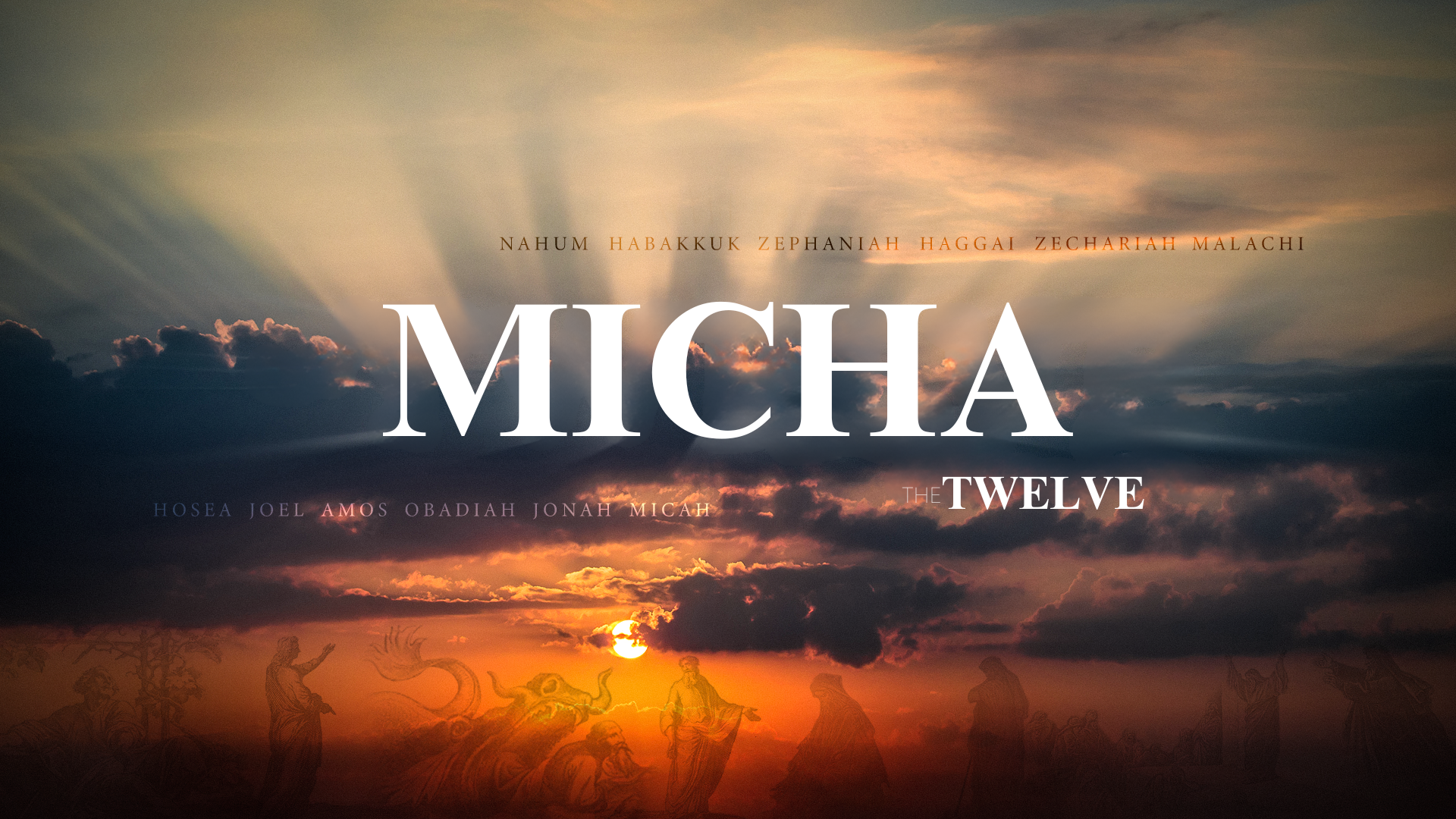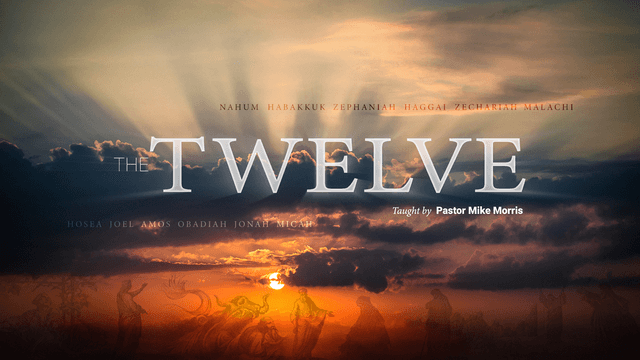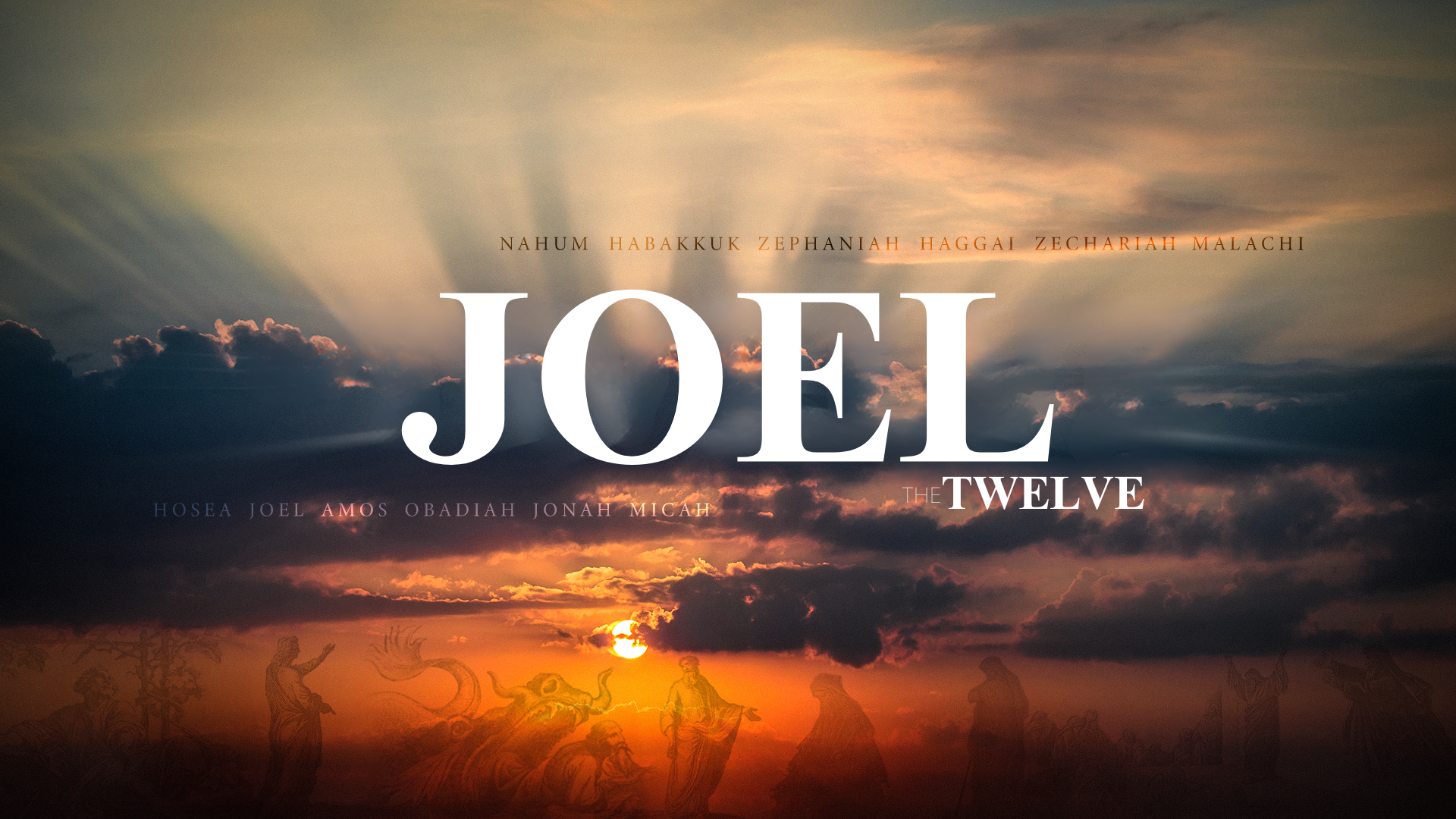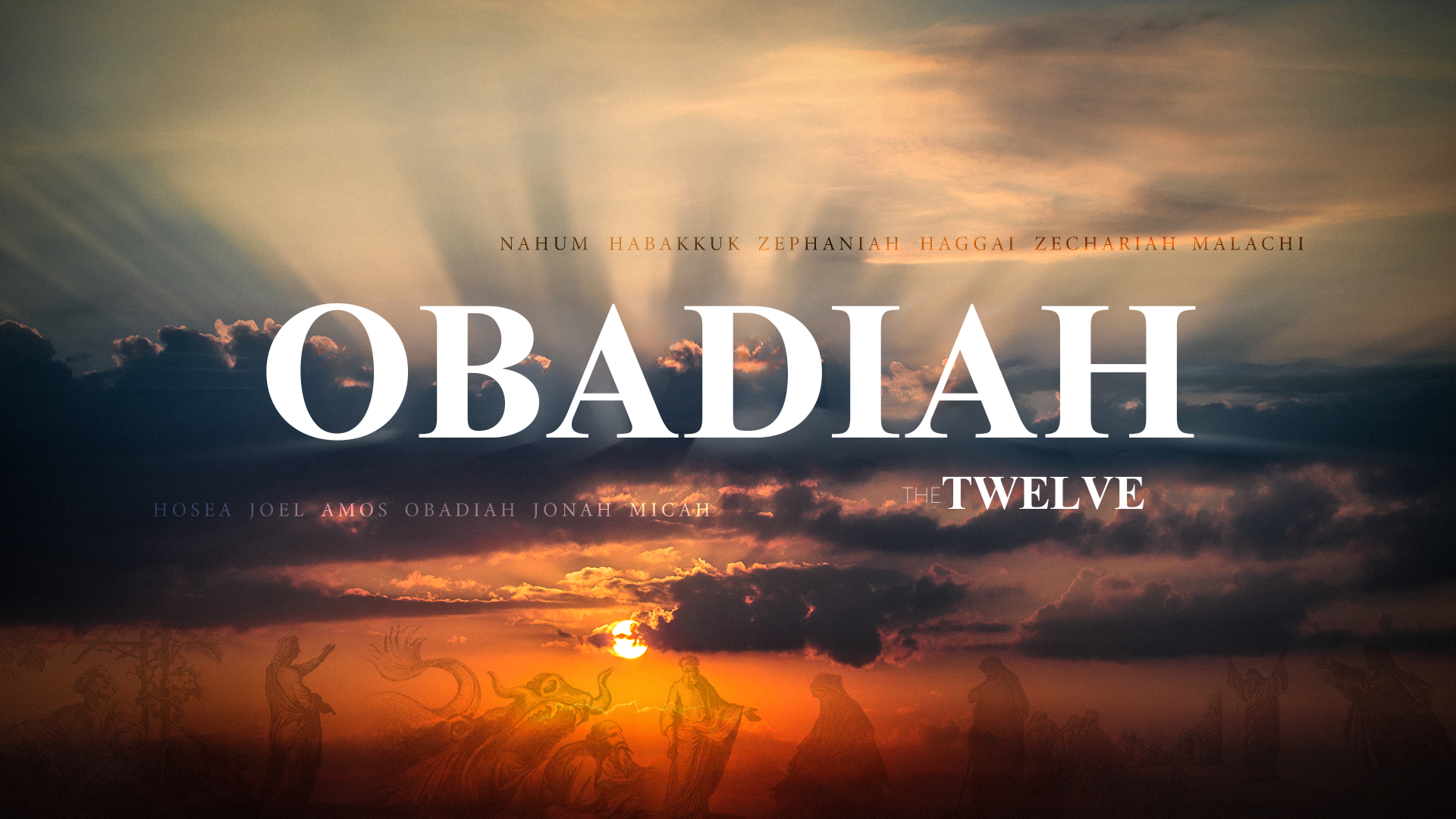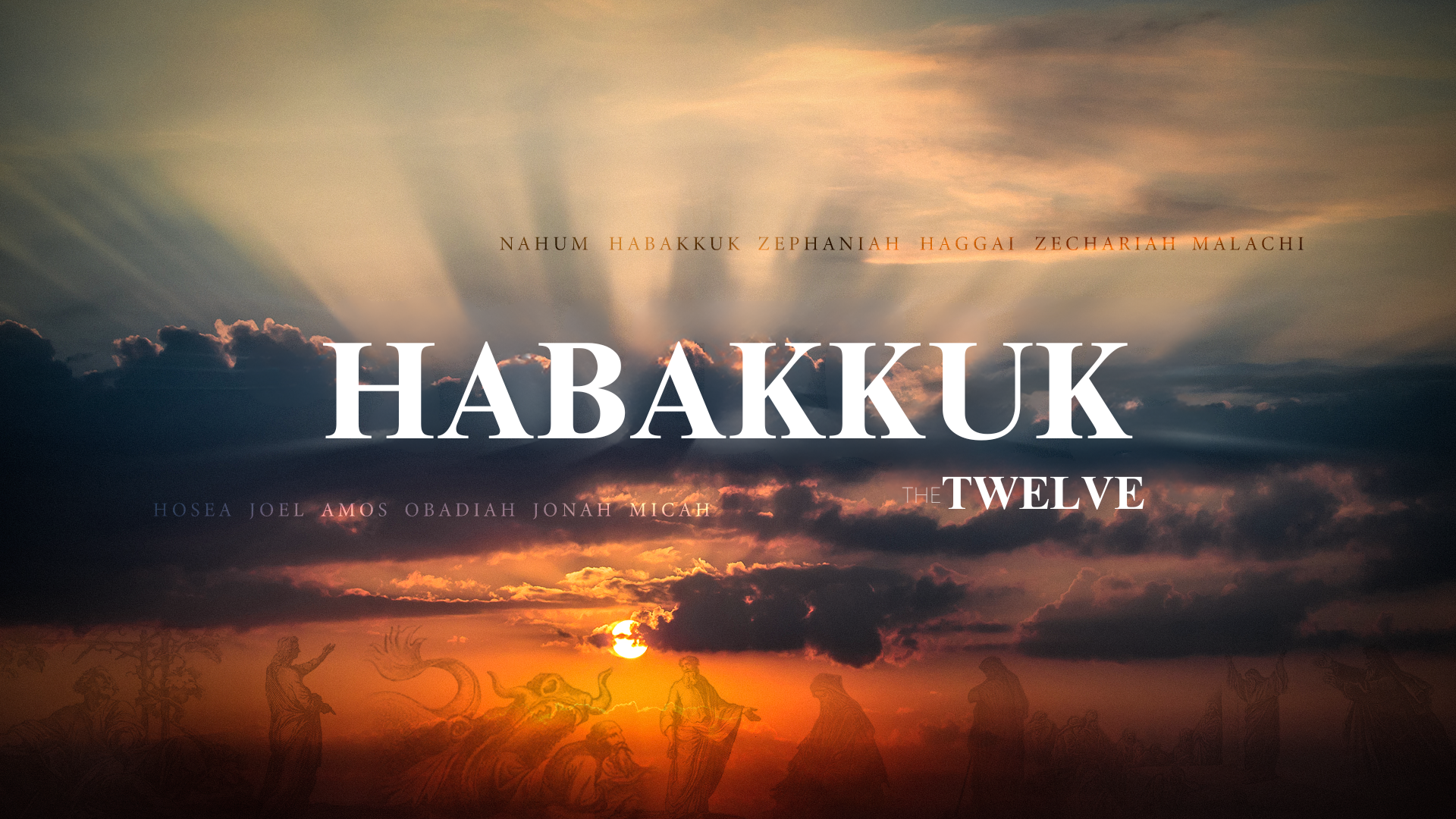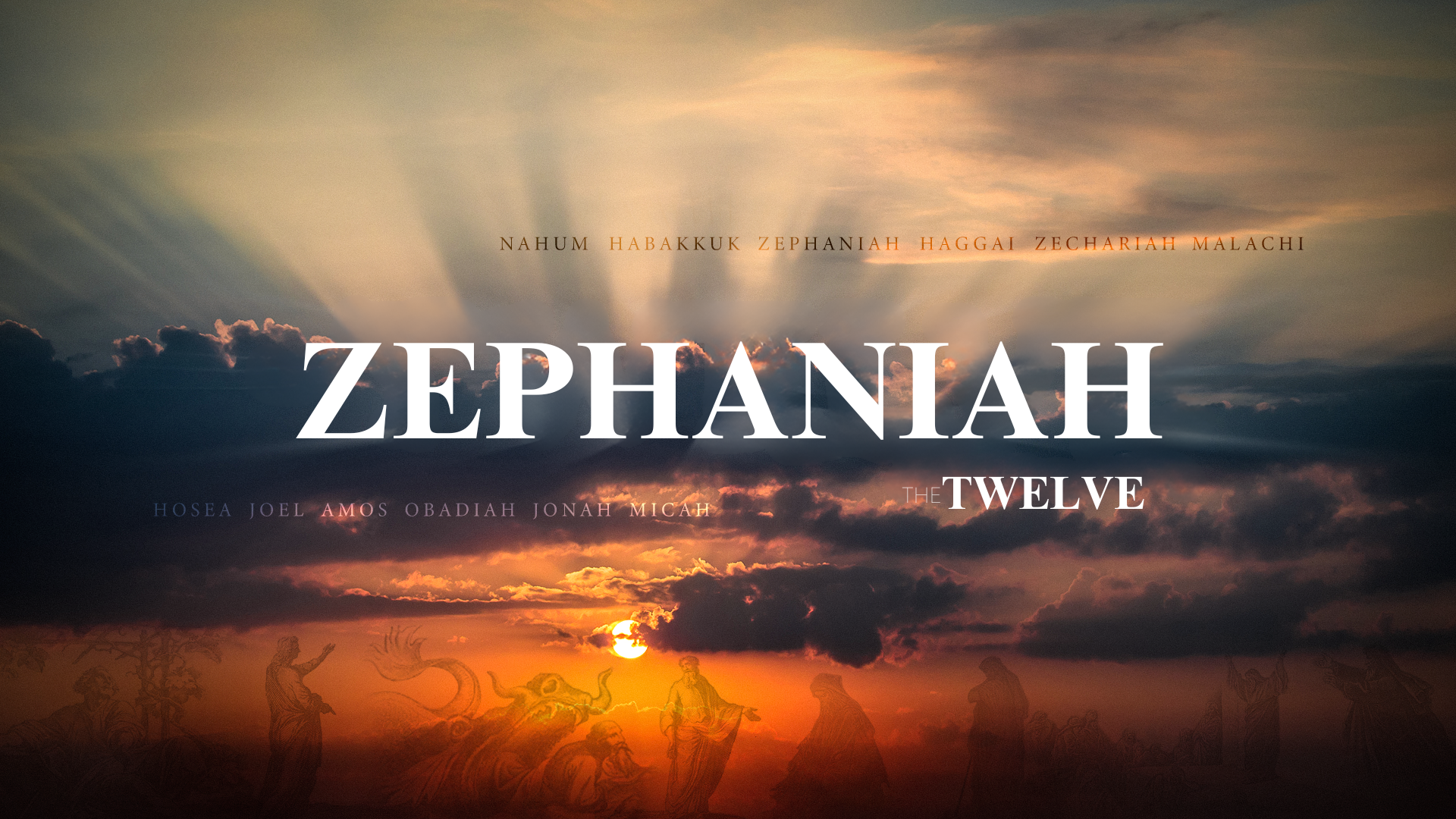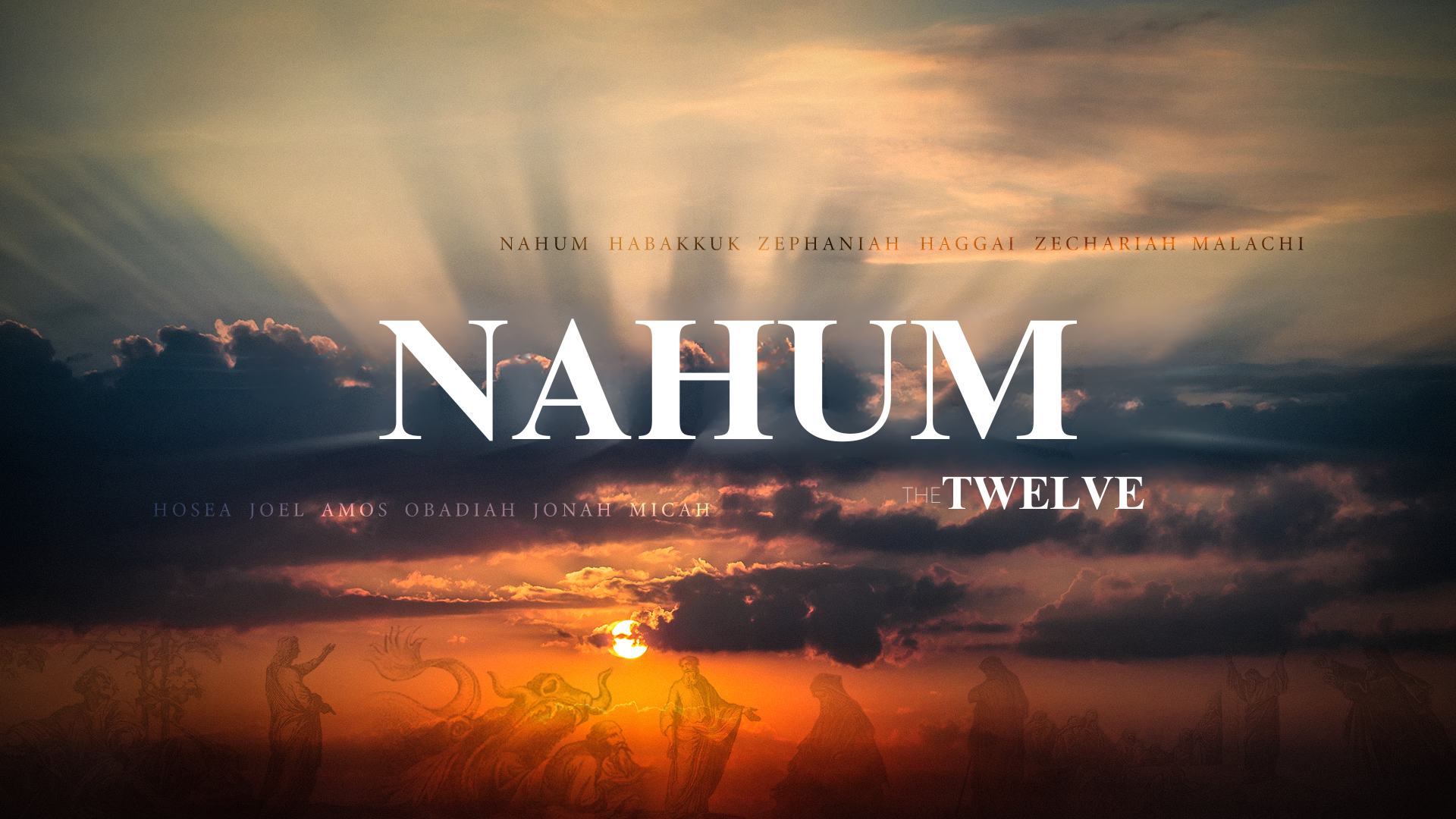MANUSCRIPT
Tonight, we continue our study of the prophecy of Zechariah.
As we begin, let’s quickly review what we’ve learned so far in this book. Verses 1.1-6 are God’s call to repentance and His promise to return to the people as they returned to Him. Verse 1.6 tells us the people did repent, opening the door for the eight encouraging visions of 1.7 through 6.8.
The first vision sets the stage for the rest. The Angel of the Lord, the Messiah, is in the midst of a grove of myrtle trees, representing His people, the Jews. He intercedes for Yahweh to show mercy to the people of Judah, and Yahweh pledges to remember and bless His people, for He was “exceedingly jealous for Jerusalem and for Zion.”
The second vision was about the horns and the craftsmen. God used the horns, Gentile world powers, to scatter Israel, but He promised He would also judge the Gentile world powers, for He said, “15. I am exceedingly angry with the nations that are at ease; for while I was angry but a little, they furthered the disaster.”
Next time, we will examine the fourth vision, 3.1-10, a vision of the cleansing of Joshua, the high priest. I recommend you read ahead for that one.
Tonight, we turn to the third vision, the man with the measuring line.
Let’s turn to the text!
The Man with the Measuring Line
As the third vision appears to Zechariah, the scene dramatically changes.
1 And I lifted my eyes and saw, and behold, a man with a measuring line in his hand! 2 Then I said, “Where are you going?” And he said to me, “To measure Jerusalem, to see what is its width and what is its length.” 3 And behold, the angel who talked with me came forward, and another angel came forward to meet him 4 and said to him, “Run, say to that young man, ‘Jerusalem shall be inhabited as villages without walls, because of the multitude of people and livestock in it. 5 And I will be to her a wall of fire all around, declares the Lord, and I will be the glory in her midst.’”
Let’s set the scene. The first element mentioned is a man. Who is this man, and why is he included in the vision? What makes the best sense with his primary role in the vision and the action he is taking is that this is another depiction of Jesus Messiah, here spoken of as a “man” just as He is in Zechariah 1 as the man among the myrtle trees, and in Zechariah 6. ‘Thus says the Lord of hosts, “Behold, the man whose name is the Branch: for He shall branch out from His place, and He shall build the temple of the Lord... and shall sit and rule on His throne. Any other conclusion about the identity of the “man” too greatly minimizes the role of the “man” as the one measuring Jerusalem, and there’s no reason to consider him an angel, as angels are called angels, not men, here. In the first vision, He is the Angel of the Lord; in the second vision, He is the fourth craftsman who crushes the kingdoms of men, and I think here He is the man with the measuring line. Let’s move on to what the man is doing.
We’ve seen that God is exceedingly jealous for Jerusalem. many of the promises of the first vision relate specifically to Jerusalem, and one in particular, verse 1.16, is the subject of this third vision. That the measuring line shall be stretched out over Jerusalem.
The phrase, the measuring line, is used in Scripture in more than one way. One use is specifically related to Ezekiel 40-48, a lengthy passage in which Ezekiel is given a walking tour of the Millennial Kingdom Temple. Another use is related to judgment, such as in Lamentations 2 and Amos 7, and in 2 Kings 21.12-13: thus says the Lord, the God of Israel: Behold, I am bringing upon Jerusalem and Judah such disaster that the ears of everyone who hears of it will tingle. 13 And I will stretch over Jerusalem the measuring line of Samaria, and the plumb line of the house of Ahab, and I will wipe Jerusalem as one wipes a dish, wiping it and turning it upside down. As the Lord measured Samaria for destruction, so would He measure Jerusalem with the same measuring line, a sign of coming judgment fulfilled in the destruction of Jerusalem by the Babylonians.
But in this passage in Zechariah, God’s use of the measuring line is for blessing. The “man” is measuring with a line, much as in Ezekiel, and His intent is to measure the footprint or the plan for Jerusalem, to see what is its width and what is its length.”
This is spoken in the present tense, but in that moment, of course, Jerusalem was nothing more than a collection of private homes and a foundation for the Temple, but nothing more. No city buildings, no Temple, no walls. This is a prophetic measuring, a preview of what Jerusalem will be. He’s measuring not what Jerusalem is, He’s measuring the Jerusalem that He Himself will restore and enlarge according to His will and purposes, the capital city of the Messiah.
At this point, the actors begin to move. Interpreting angel moves forward, but is quickly met by “another angel” with an urgent message for Zechariah, for he says this: “Run, say to that young man, ‘Jerusalem shall be inhabited as villages without walls, because of the multitude of people and livestock in it. 5 And I will be to her a wall of fire all around, declares the Lord, and I will be the glory in her midst.’”
This raises a question: What is the character and nature of the future Jerusalem?
There is an amazing amount of prophecy centered on the future of Jerusalem, including numerous passages in Isaiah, Ezekiel, Daniel, and many of the Twelve. Here are three main elements of the future glory of Jerusalem.
Jerusalem shall be inhabited as villages without walls, because of the multitude of people and livestock in it. This would have been difficult to understand for Zechariah and anyone living in the ancient Near East. Before its destruction, Jerusalem had been a fortress city with walls because of threats from enemies. In the case of Jerusalem, the Assyrians wanted to destroy it, and the Babylonians did destroy it. But the measuring Zechariah sees would not have made much sense, since the width and length of it were far beyond what the prophet could conceive of. But that’s the urgent message: in the future, the distant future as we know it now, Zechariah learns that Jerusalem won’t have a wall, but instead will spread all over the location of the city proper and far beyond, out into the countryside, including villages and towns. The walls of Jerusalem never encompassed a large area, but this vision is enormous by comparison, and the size had to be so to support the multitude of people and livestock in it. Today, we find this easier to understand, since our cities have never had walls surrounding them, but are similar to this vision of an unbounded city. the vision indicates there will be so many people in Jerusalem that they will overflow any previous boundaries. by contrast, in Nehemiah’s day, a few decades later, so few Israelites lived in Jerusalem that they began a lottery to pick the occupants. Nehemiah 11.1-2 Now the leaders of the people lived in Jerusalem. And the rest of the people cast lots to bring one out of ten to live in Jerusalem the holy city, while nine out of ten remained in the other towns. 2 And the people blessed all the men who willingly offered to live in Jerusalem. But on the day of God’s blessing, the city will be bursting with people. This prophecy has never been fulfilled to this degree, but it will be in the Millennium Kingdom during the reign of Jesus. We’ll see this again in Zechariah 8.1-5 (for more on this, see Isaiah 44.26 and 49.19, and Jeremiah 30.18-19, 31.24, 38, and 33.10)
And the reason there would be no wall to protect the city is this: God Himself would be their protection. See verse 5: 5 And I will be to her a wall of fire all around, declares the Lord . What a wondrous encouragement to the people as they labored to restore the Temple and the city. No longer would they fear any of their enemies because their covenant God would be their wall, their protector, their defender. He has been a wall of fire before, as He protected Elijah and his servant from the Syrian army in 2 Kings 6.17. 17 Then Elisha prayed and said, “O Lord, please open his eyes that he may see.” So the Lord opened the eyes of the young man, and he saw, and behold, the mountain was full of horses and chariots of fire all around Elisha. When God purposes to defend His people, He will accomplish it – no enemy will dare to draw near. What a glorious day!
And lastly, God declares I will be the glory in her midst. The same shekinah glory that traveled with the Israelites in the desert, the glory that departed from the Temple in Ezekiel 10, will again return to Jerusalem, for God Himself will dwell in her midst in all of His glory. The Messiah, the visible glory of God, shall be present, as foretold by the prophet in Ezekiel 48.35, And the name of the city from that time on shall be, The Lord Is There.”
“Flee!”
Having heard the encouragement that Jerusalem would one day be a vast city overflowing with people and livestock, encompassing the surrounding land filled with villages and towns, and that God Himself would be their protection and defender, and that His glory would be there in the midst, the people hear a challenge and a command.
6 Up! Up! Flee from the land of the north, declares the Lord. For I have spread you abroad as the four winds of the heavens, declares the Lord. 7 Up! Escape to Zion, you who dwell with the daughter of Babylon. 8 For thus said the Lord of hosts, after His glory sent me to the nations who plundered you, for he who touches you touches the apple of His eye: 9 “Behold, I will shake My hand over them, and they shall become plunder for those who served them. Then you will know that the Lord of hosts has sent Me.
In light of His promise of the restoration and enlargement of Jerusalem, God’s protection as a wall of fire around it, and His glory in its midst, God gives a clear, emphatic command to a group of the exiled Jews: Flee from the north!
Up! Up! is a vigorous shout from the Lord. This would be like getting a text from God in all caps. Previous generations of Jews had not paid attention, but now God is calling out again to His people, and His command is to “flee from the north”.
This is directed to the Jews still living in Babylon. Though Babylon was east of Jerusalem, the terrain required anyone approaching Jerusalem to come from the north. So far, only 50,000 Jews had returned. Many times that number had settled into life in Babylon and had not heeded the call to offer to Judah. Whether they had been seduced into idolatry, were too financially comfortable, or had married a foreigner, the Jews had rejected the opportunity to return and help rebuild Jerusalem.
But now God was warning them. Though Yahweh had spread them to the four winds of the heavens, He was now summoning them back to Judah, for at least two reasons:
First, God wanted His people fully back in their land. Their full blessing awaited the Jews in Jerusalem, in their homeland, not in the land of their exile. God had given them Judah, and they must return to that sacred land. And every person would be needed in the rebuilding effort, which must have seemed overwhelming. The Temple, the city walls, and the buildings within the city itself. A lot of work lay before them, and all those who were part of the remnant of Judah were needed to take up their part of the effort.
Second, they were God’s people and had no reason to stay in a foreign land, especially Babylon. God was clear that remaining there was a serious danger to them and their children: 7 Up! Escape to Zion, you who dwell with the daughter of Babylon. He uses the word “escape” for a reason. It probably looked like a foolish choice to leave a comfortable life in Babylon for the hardship and privation of life in Judah, but they were ignoring the spiritual danger of remaining in Babylon, of settling into a comfortable life in an idolatrous nation. Like Lot and his family in Sodom, there are consequences for accepting the sin around you. Said more positively,
They had forgotten the truth of Psalm 1.1-2:
Blessed is the man
who walks not in the counsel of the wicked,
nor stands in the way of sinners,
nor sits in the seat of scoffers;
2 but his delight is in the law of the Lord,
and on his law he meditates day and night.
And God would judge the godless nations. 8 For thus said the Lord of hosts, after his glory sent me to the nations who plundered you, for he who touches you touches the apple of his eye: 9 “Behold, I will shake my hand over them, and they shall become plunder for those who served them. Then you will know that the Lord of hosts has sent me. This is a remarkable passage. What a beautiful way to describe the intensity of God’s protective love of Israel than to say they are the “apple of His eye”. God promises that He will shake His hand over the nations who have oppressed His people, which is a way of saying that He will display His power and authority over them, and the result would be a complete reversal of what the people of Judah had once known. On that coming day, the Jews would plunder their enemies, taking back what they had lost, and as the Jews were once enslaved to the Gentile world powers, their oppressors would in turn become the slaves of the Jews. God would turn the tables on the nations who, as we saw in vision 1, had “furthered the disaster” by exceeding the mandate of judgment given to them by God. Retributive justice would be served.
One extra note here: this won’t be the last time God warns His people to flee Babylon.
In Revelation 18.4-5 we find the same warning to God’s people about the final world system, called in Revelation “Babylon the Great, Mother of Harlots”.
4 Then I heard another voice from heaven saying,
“Come out of her, My people,
lest you take part in her sins,
lest you share in her plagues;
5 for her sins are heaped high as heaven,
and God has remembered her iniquities.
But don’t miss the last sentence: Then you will know that the Lord of hosts has sent me. When God works as only He can, there’s no mistaking who deserves the glory. When Messiah comes in great power and authority, judging the nations and vindicating His people, all will know the majesty and sovereignty of Israel’s God.
“Sing and Rejoice!”
Now the encouraging vision comes to a close.
10 Sing and rejoice, O daughter of Zion, for behold, I come and I will dwell in your midst, declares the Lord. 11 And many nations shall join themselves to the Lord in that day, and shall be My people. And I will dwell in your midst, and you shall know that the Lord of hosts has sent Me to you. 12 And the Lord will inherit Judah as His portion in the holy land, and will again choose Jerusalem.” 13 Be silent, all flesh, before the Lord, for He has roused Himself from His holy dwelling.
For all that the Lord has done and for His presence in the midst of His people, how could the people of Judah not sing and rejoice?
The Lord of Hosts has commanded His people to Escape to Zion, you who dwell with the daughter of Babylon. Now He speaks to the daughter of Zion, and assures her that His divine presence would return and dwell in the midst of His people, in Jerusalem, and that His works will be the proof of both His constant presence and His enduring love. And then comes the joining of “the nations,” another descriptor of the Gentile peoples, with the people of Israel.
This was difficult for the Jews to comprehend, though it is mentioned in the OT, here as well as in other places. But it’s easier for us to see today in the NT. Paul speaks of it in Ephesians 2.11-22. Read with me. 11 Therefore remember that at one time you Gentiles in the flesh. 12 remember that you were at that time separated from Christ, alienated from the commonwealth of Israel and strangers to the covenants of promise, having no hope and without God in the world. 13 But now in Christ Jesus you who once were far off have been brought near by the blood of Christ. 14 For He Himself is our peace, who has made us both one and has broken down in His flesh the dividing wall of hostility 15 by abolishing the law of commandments expressed in ordinances, that He might create in Himself one new man in place of the two, so making peace, 16 and might reconcile us both to God in one body through the cross, thereby killing the hostility. 17 And He came and preached peace to you who were far off and peace to those who were near. 18 For through Him we both have access in one Spirit to the Father. 19 So then you are no longer strangers and aliens, but you are fellow citizens with the saints and members of the household of God, 20 built on the foundation of the apostles and prophets, Christ Jesus himself being the cornerstone, 21 in whom the whole structure, being joined together, grows into a holy temple in the Lord. 22 In Him you also are being built together into a dwelling place for God by the Spirit.
Jesus Himself speaks the same truth in John 10.14-16. 14 I am the good shepherd. I know My own and My own know Me, 15 just as the Father knows Me and I know the Father; and I lay down My life for the sheep. 16 And I have other sheep that are not of this fold. I must bring them also, and they will listen to My voice. So there will be one flock, one shepherd.
That’s the promise of the Father and the Son. Through the saving work of Jesus Christ, our Good Shepherd, the redeemed of all the ages, Jews and Gentiles alike, will be together with our Lord forever – all are brought near, all are at peace with one another, all are reconciled through the cross. One flock under one Shepherd.
The sure promise has been given: 12 And the Lord will inherit Judah as His portion in the holy land, and will again choose Jerusalem.” There will forever be a special bond between the Lord and His chosen nation, the Jews, and His land, Judah, and His city, Jerusalem. But through His grace, His mercy and covenant love extend even to the Gentiles, to we who are His because He chose us as His flock of another fold, as the wild olive branch grafted in to the olive tree of the children of Jacob, as the children of Abraham with no claim of blood, but instead of faith alone.
The vision ends with a statement filled with promise for some, fear for others. The Almighty God is alive and well and achieving His purposes in His world.
13 Be silent, all flesh, before the Lord, for He has roused Himself from His holy dwelling.
Application
What can we learn in these days?
God has a plan – trust Him when you don’t understand what He’s doing (Prov 3.5)
The Lord is our Protector and Defender – He is our sovereign God (Psalm 121)
Don’t settle down and get comfortable with sin – run to Jesus (Genesis 19)
God’s justice will not rest dormant forever – the wicked will be held to account (Psalm 37.28)
Praise Him! Sing and rejoice, for our God is good and His mercy endures forever! (Psalm 47)

Taught by Mike Morris
Associate Pastor of Verse By Verse Fellowship
The Twelve Series
